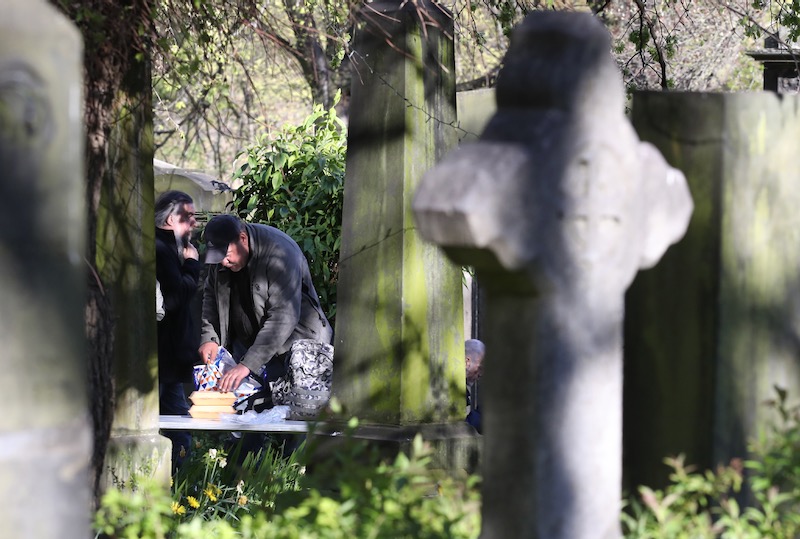Charity services have been delivered to the most vulnerable people despite lockdown, staffing challenges and economic uncertainty, according to delegates at the directors' forum of the Caritas Social Action Network which met last week. Ged Edwards, CSAN Development Officer, told The Tablet that financial resilience has gone alongside stepping up to new demands and developing new areas of work.
Although Covid-19 impacted many income streams, the Catholic Children’s Society (CCS) in the South East continued to support vulnerable families. “Our main fundraising appeal in schools takes place during Lent and school closures meant that fundraising events and collections were not possible,” said Chief Executive Rosemary Keenan, and “parish closures also impacted our voluntary income”.
However, she was thankful that individual supporters and funders, such as the Albert Gubay Charitable Foundation, ensured funds were there to support CCS work for, “demand for our services has never been greater and we have seen a huge increase in the number of children experiencing mental health issues as well as financial hardship.” Thousands of families have been struggling with issues of anxiety, depression and isolation.,
Crisis grants over recent months have supported almost 600 children and parents/carers facing severe poverty and hardship due to the lockdown, health problems and loss of work. CCS quickly trained their therapists, through a new certificated course, with the skills to counsel children and families online. It has provided specialist bereavement training for over 80 school staff, enabling them to run support groups for pupils who have experienced a significant loss in their lives.
The Jesuit Refugee Service (JRS UK) reported a very positive response in giving from supporters, in particular to the Refugee Friends’ Hardship Fund appeal. This was vital since emergency response work replaced suspended face-to-face services. Grants for COVID-19 specific work has allowed JRS to continue providing support over the phone, financial hardship grants, and emergency food and toiletry deliveries.
“I am hugely grateful to our supporters and donors,” said Sarah Teather, Director of JRS UK. The funding helped JRS radically reorient services, but she has warned about the long-term. “As we move into the ‘new reality’, our refugee friends will suffer from the unpredictability of changing public health guidance and precarious housing situations,” she reflected, “and like many other charities, we currently face a significant financial shortfall for next year.”
The Cardinal Hume Centre, and its clients also fear having to “face an uncertain future,” Chief Executive George O’Neill told The Tablet. “We have been touched by the backing we have received from many individuals in recent weeks, it has helped to ensure we have been able to maintain the bulk of the support we provide” he said.
In the first three months of the lockdown, the centre helped nearly 400 people with advice, well over 200 with access to emergency food and remain a home for 36 young people. However, increasingly, the Centre is being asked to help clients who have recently lost work or are trying to navigate their rights when made redundant.
“Safeguards for those who rent or were unable to work during the height of the lockdown look likely to end,” he reported, “and we’re worried that more young people and families will face unemployment and homelessness and the need for help will increase.” Emergency funding has been available, including some from the Government, but the Centre is worried about the long term. “We have to persuade people to support our work not just now, but in the months and years ahead, to give us the confidence to focus on what we do best, when it is needed most,” said Mr O’Neill; “we will do our best to be ready to help meet these challenges in financially difficult times.”
Paul Bott, Chief Executive of St John Of God Hospitaller Services, reported on “meeting greater need in an increasingly difficult funding environment.” He told The Tablet: “Long-term financial viability is key if you want to be supporting people tomorrow as well as today.” He felt tough decisions need to be made, noting that recession “is likely to reduce the amount of money in fundraisers’ buckets”. Nugent Care in Liverpool Archdiocese has formed a dedicated planning ahead team, drawing on Catholic social teaching and the best of the guidance in the commercial sector.
The SVP England and Wales worked throughout lockdown to support people who were unwell or isolating themselves, including people prevented from earning an income. This was despite many experienced volunteers and leaders being blocked by COVID-19 on age or health grounds from taking their normal active roles. Many parishes without SVP involvement drew upon the CSAN Pandemic Response Toolkit, written with the SVP.
Mark Wiggin, chief executive of Caritas Salford, has highlighted the importance of mutual interdependence of Catholic agencies and groups within Salford Diocese, as well as partnership arrangements with larger agencies, including with CSAN, Catholic Care in Leeds and Father Hudson’s Care in Birmingham. He foresees larger agencies working more closely across the country with other Caritas agencies at Diocesan level, recognising the growth in leadership of the laity within the Church on social outreach.
Jo Kitterick, head of fundraising at Cafod, told The Tablet that Cafod’s Family Fast Day income reduced by two-thirds over the lockdown period. The Cafod Lent Fast Day collection took place just as churches and schools were closing in March, “and we saw a dramatic reduction in the number of parishes sending donations to us”. She reported “difficult decisions” were made on how best to steward reduced resources.
However, she added that, “we have a number of supporters who commit to monthly gifts to CAFOD and these regular donations have been a lifeline for us at this time and we rely on them more than ever”. She hoped that, “people will make the decision to set up a direct debit towards Cafod’s work so that we can honour our commitments to supporting communities around the world.”
Funds during the pandemic have supported such initiatives as distributing soap and emergency food packages to vulnerable families in Ethiopia, Zimbabwe, Nigeria and Kenya. In Myanmar, the Church has helped to provide safe places for people to quarantine themselves and to help set up track and trace systems. In Bangladesh, cash is given to the poorest families – led by widows, or those living with disabilities - to buy food and Personal Protection Equipment.
Cafod has also stimulated continuing engagement with the faith community in parishes and schools online. Weekly children’s liturgies involve around 300 families and more than 320 people attended Cafod’s most recent online Mass. Cafod volunteers have raised money by holding virtual pilgrimages, virtual cycle rides to Kenya and back, and through donating the cost of the haircuts they have missed during lockdown.
A coronavirus appeal was launched at the end of April, which has raised over £1 million. “With Catholic churches and schools closed and slowly reopening and the financial challenges our churches are managing, further down the line we know that our income will be affected” said Ms Kitterick. “Our Harvest Fast Day takes place on 11 October,” she added, “and we will do our best to make it a Harvest Fast Day like no other.”



 Loading ...
Loading ...